Tokyo Olympics 2021: Brutal reality of being a spectator as Japan continues fight to contain virus
Olympic spectators will face the most stringent set of rules ever in Tokyo. But it won’t end there, with fans urged to follow tough guidelines beyond the Games venues themselves.
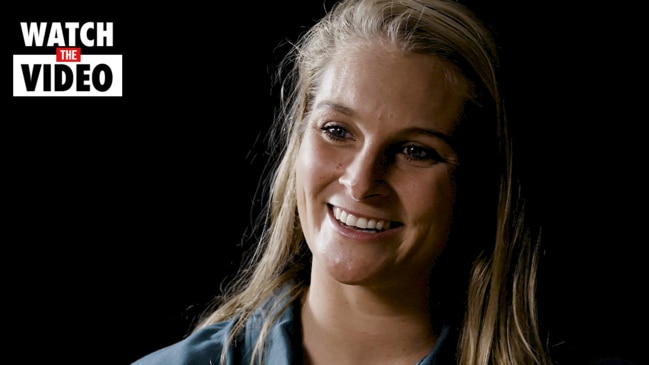
Spectators at the Tokyo Olympics may have to show a negative virus test result before being allowed to enter venues and could be ejected if they break rules banning eating, drinking and cheering.
A draft of proposals makes clear that if people are allowed to watch events live, it will be under strict rules that will quell the celebratory atmosphere.
According to details printed in Japan’s Yomiuri newspaper, spectators may be required to present a negative PCR test taken within the previous week or proof of vaccination along with their entrance ticket.
The cost of testing must be borne by spectators who will also face temperature and other health checks and be required to wear masks.
Kayo is your ticket to the best sport streaming Live & On-Demand. New to Kayo? Try 14-Days Free Now >
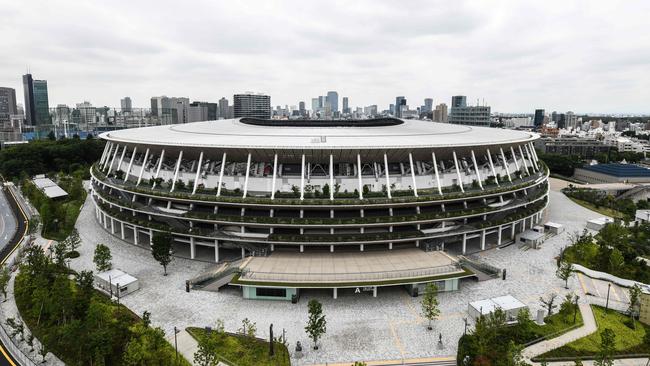
According to the newspaper: “Security guards will be stationed at venues, and means are planned for violators to be refused entrance, or asked to leave if already inside.
“At the venues, the measures taken will include a health check at the gate, the constant wearing of masks, and the staggering of the exit flow.
“During competition, eating and drinking will be prohibited, along with loud cheering and high fives.”
Olympic spectators will be “strongly urged” to go straight to their homes or hotels after events, without stopping at restaurants or bars, and to avoid gathering in “fan groups” outside venues. Public viewing events in front of big screens in parks and stadiums will be cancelled or reduced.
Tokyo and other big Japanese cities are under an extended state of emergency as the country struggles with a fourth wave of the coronavirus pandemic that has overwhelmed hospitals in some areas.
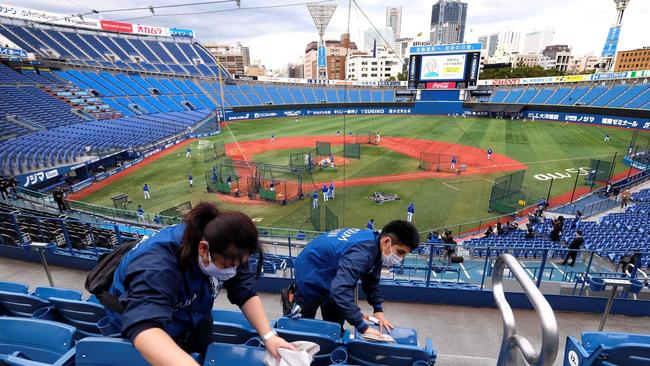
Opinion polls show that most Japanese oppose the holding of the Olympics and Paralympics.
The Olympic authorities have already decided to exclude spectators from overseas.
A ruling on whether residents of Japan will be allowed into venues has been repeatedly delayed, and is promised next month.
Toshiaki Endo, the vice president of the Tokyo 2020 organising committee, said he would prefer events without spectators in order to ease fears that the Games could turn into a superspreader event, but that the decision had not yet been made. U
nlike most Olympic officials who maintain a public stance of complete confidence that the Games will go ahead, Endo acknowledged the possibility of cancellation if the pandemic gets worse.
“Hypothetically, can we hold the Games if there is a sudden ten or hundred-fold increase?” he told Reuters. “We’ll need to make a decision at the time.”
He added: “I personally had thought we should quickly decide to hold the Games without spectators to reassure everyone.
“But of course if you think about this from the point of view of the athletes, they want to compete while being cheered on by the spectators. That’s why, if possible, we’d like to allow the spectators in … but depending on the situation we also need to consider the no-spectators option.”
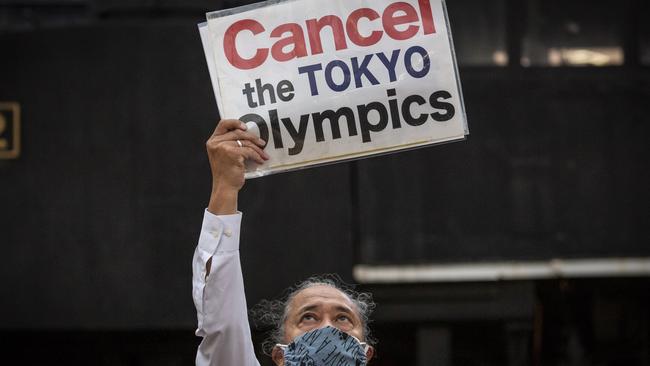
He added that members of the media arriving to cover the Games would be “subjected to movement controls”.
The emergency measures, which cover most of Japan’s population, had been due to be lifted this week but will be extended to June 20, just over a month before the Olympic opening ceremony on July 23.
The Japanese government has come under increasing pressure to cancel the Games, which have been postponed since last summer.
Doctors’ organisations have called for them to be halted, as have prominent business leaders and Japan’s second biggest newspaper, the Asahi Shimbun, which is an Olympic sponsor.
Don’t go: Serious setback to Tokyo Olympics
US government health officials have warned Americans against travelling to Japan because of a surge in coronavirus cases.
It is another serious setback to Japan’s hopes of convincing its own citizens that the Tokyo Olympics should not be cancelled.
Americans have not been banned from travelling but they have been made aware of the impact on their insurance rates. The directive may also have a bearing on the decisions of athletes on whether to compete at the Games, scheduled to start on July 23.
The US State Department has raised its travel advisory alert from level three to level four with Japan still in a state of emergency over a widening Covid-19 outbreak.
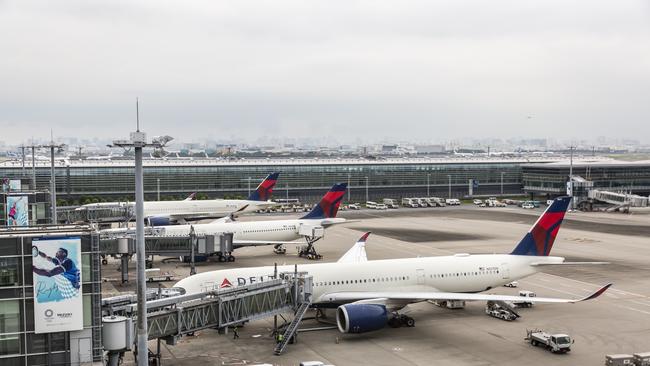
The news came after Japan’s second-richest man called for the cancellation of the Games. Masayoshi Son, the billionaire head of the telecommunications firm SoftBank, voiced his concerns shortly before Japan opened its first mass vaccination centres to speed up a program that has reached about four per cent of the population.
“More than 80 per cent of people want the Olympics to be postponed or cancelled,” he wrote to his 2.8 million Twitter followers.
“By whom and on what authority is it being forced through? Does the IOC have the power to decide that the Games go ahead?
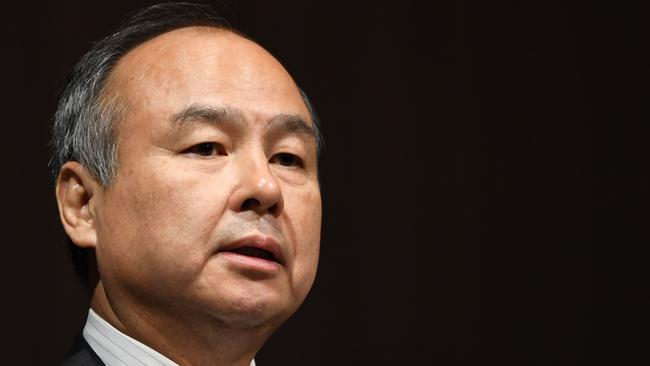
“There’s talk about a huge penalty (for cancelling the Games) but if 100,000 people from 200 countries descend on vaccine-laggard Japan and the mutant variant spreads, I think we could lose a lot more: lives, the burden of subsidies if a state of emergency is called, a fall in gross domestic product, and the public’s good will.”
Meanwhile, the Team GB chef de mission, Mark England, said he was “very hopeful” all athletes and support staff would be vaccinated before the Games, but stressed it was not a condition of travel.
The British government had agreed to cover jabs for all of the travelling parties, using vaccines made available through a deal struck between the IOC and Pfizer.




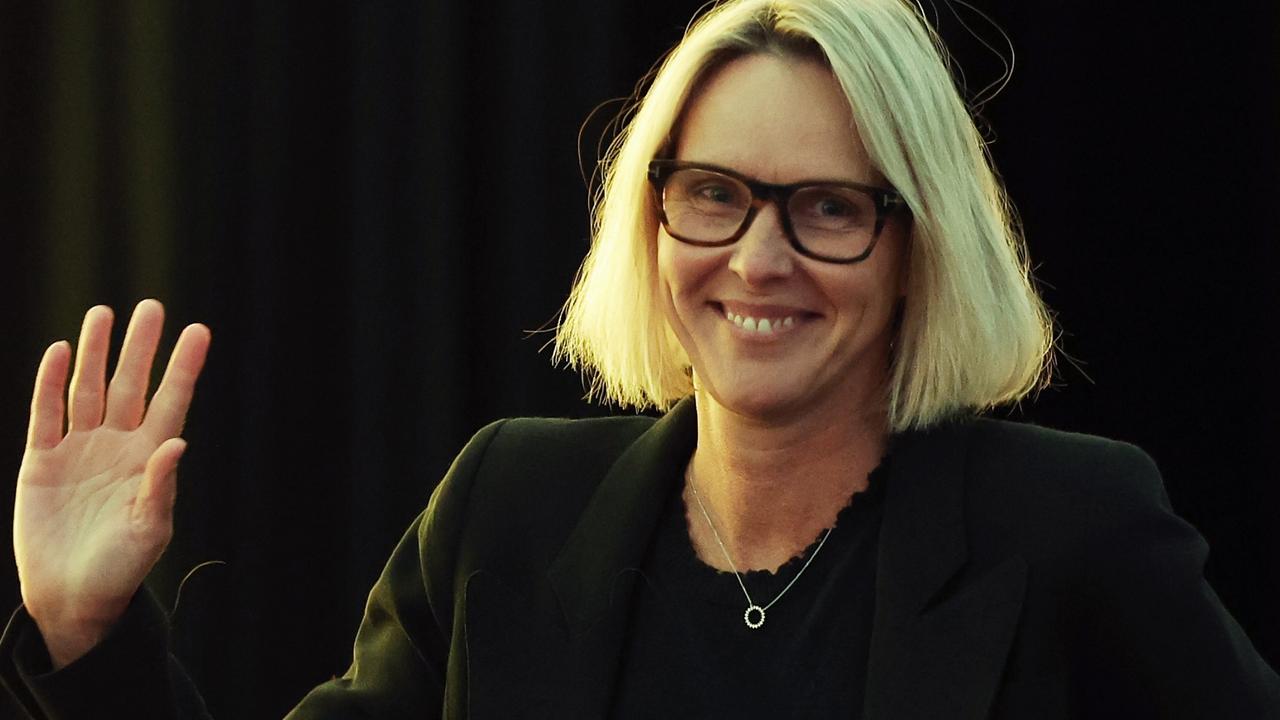

To join the conversation, please log in. Don't have an account? Register
Join the conversation, you are commenting as Logout